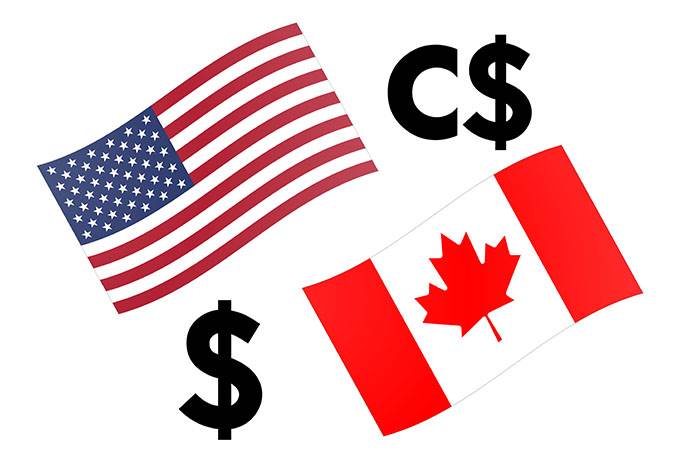 Last week the Canadian Dollar fell 0.73 percent against the greenback, following the recovery of the oil markets and improving from the previous week's figures.
Last week the Canadian Dollar fell 0.73 percent against the greenback, following the recovery of the oil markets and improving from the previous week's figures.
The oil markets showed signs of recovery last week after the WTI crude oil contract prices fell to the lowest ever recorded level, while prices turned negative. Last week, West Texas Intermediate crude oil contracts closed in the positive territory for the third consecutive day adding 2.67 percent on Friday's session, followed by Brent crude futures which added 0.52 percent. This market's poor performance is linked mainly to an excess of supply as well as a shrinking demand linked to the economic effects of the epidemic.
As many already know, the Canadian dollar is a Petrocurrency, which means it tends to appreciate when the oil prices rise. Therefore, it shouldn't be surprising to see it falling as of late given the poor performance of the oil markets. Canada has the third-largest oil reserves in the world and its oil exports account for about 10 percent of its gross domestic product, and it has been reported that the Canadian crude sector is shutting down its production given the low oil prices.
There are currently more than 2500 confirmed deaths linked to the advance of the coronavirus outbreak on Canadian soil. Besides this, there are about 46,895 infection cases, which has led the different provinces to enact quarantine measures. Just as any other country, Canada is being affected by the pandemic from an economic point of view. According to Statistics Canada, March's gross domestic product shrank by 9 percent, the steepest monthly decline since 1961, and went down by 2.6 percent in the first quarter.
Despite the situation, the Bank of Canada decided to leave the cash rates unchanged at 0.25 percent, which they consider the "lower bound", and hinted it's not planning to go any lower in the near future. It also pledged to help the Canadian economy through the implementation of its asset purchasing program, as it would help to ensure households and businesses have access to enough cash to face the detrimental effects of the advance of the pandemic.
The Canadian government also pledged to help businesses and households through the implementation of a fiscal stimulus package that its worth about 3 percent of the Canadian gross domestic product. The plan included a $10 billion Canadian dollars emergency care program to workers and wage subsidies to small businesses, as well as tax referrals.
The measures are necessary since like any other economy, Canada's GDP is expected to contract this year. The IMF expects the Canadian economy to contract by 6.2 percent this year, as well as a partial rebound in 2021. Previously the fund expected the Canadian economy to expand by 1.8 percent this year.
At the moment, the Canadian government is planning to restart the economy, and to do that is taking prevention to avoid the spread of the coronavirus in workplaces. Canadian Prime Minister Justin Trudeau already announced that the restrictions that were set to fight the spread of the outbreak should remain, despite the slowing death toll.
“We all must do our part by following the recommendations of public health experts and staying at home. We will get through this together,” announced Trudeau.
As per the loonie, many expect that Canada's rapidly filling storage capacity will lead to more production cuts in the future, which is, of course, good news for USD/CAD bullish investors.
"Rapidly filling (oil) storage capacity will likely result in further cuts to Canadian production, which should keep CAD upside limited for now," explained an analyst at Action Economics.
